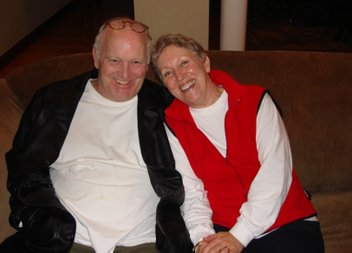Judge Irma Gonzalez ruled for San Diego on Friday in Peruta v. County of San Diego. She denied the plaintiff’s motion for a partial summary judgment and granted the defense’s motion for a summary judgment. The case was a challenge to to how San Diego Sheriff William Gore chose to define the good cause requirement of the California concealed carry permit. He required that an applicant show more than a generalized fear for one’s personal safety as a reason. Supporting documentation was also required by the sheriff.
Judge Gonzalez states that the key question in the case is whether the right to possess a handgun in one’s home for self-defense extends to either concealed or open carry of a loaded handgun. In her opinion, she starts by discussing the scope of the right to keep and bear arms. She noted that the Heller decision applied a place and manner analysis to D.C.’s prohibition on handguns. As we know, the Supreme Court found that the right of citizens to have a functional firearm including handguns in the home for self-defense was fundamental under the Second Amendment. However, outside the home they noted the Second Amendment right was not unlimited.
Judge Gonzalez then examines the plaintiffs’ contentions in the context of California law. Peruta maintained the under California law, the single outlet for a self-defense with a handgun was Cal. Penal Code Section 12050 with allows sheriffs to grant concealed carry licenses. After examining the California law governing open carry, both loaded and unloaded, she finds many exceptions that would permit self-defense with a handgun. Therefore, she refuses to accept Peruta’s contention that Cal. Penal Code Section 12050 is the sole outlet for self-defense with a handgun outside the home and that Cal Penal Code Section 12031 places an unlawful burden on the right to carry for self-defense.
The opinion looks at the 19th century cases dealing with concealed carry just like the Supreme Court did in Heller.
Because Defendant’s policy for issuing concealed carry licenses under section 12050 would pass constitutional muster even if it burdens protected conduct, the Court does not need to decide whether the Second Amendment encompasses Plaintiffs’ asserted right to carry a loaded handgun in public.
Judge Gonzalez then examines the appropriate level of scrutiny. While the plaintiffs argue that strict scrutiny is appropriate, she isn’t persuaded and notes that “fundamental constitutional rights are not invariably subject to strict scrutiny.” Moreover, she says, intermediate scrutiny is the norm of most courts as seen in the post-McDonald litigation. Such scrutiny allows government to “paint with a broader brush” and conduct is allowed so long as it is significant, substantial, or important.
In this case, Defendant has an important and substantial interest in public safety and in reducing the rate of gun use in crime. In particular, the government has an important interest in reducing the number of concealed weapons in public in order to reduce the risks to other members of the public who use the streets and go to public accommodations. See Zimring Decl. The government also has an important interest in reducing the number of concealed handguns in public because of their disproportionate involvement in life-threatening crimes of violence, particularly in streets and other public places. Id. Defendant’s policy relates reasonably to those interests. Requiring documentation enables Defendant to effectively differentiate between individuals who have a bona fide need to carry a concealed handgun for self-defense and individuals who do not.
The Court acknowledges Plaintiffs’ argument that many violent gun crimes, even a majority, are committed by people who cannot legally have guns, and the ongoing dispute over the effectiveness of concealed weapons laws. See Moody Decl. But under intermediate scrutiny, Defendant’s policy need not be perfect, only reasonably related to a “significant,” “substantial,” or “important” governmental interest. Marzzarrella, 614 F.3d at 98. Defendant’s policy satisfies that standard. Accordingly, the Court DENIES Plaintiffs’ motion for summary judgment and GRANTS Defendant’s motion for summary judgment on Plaintiffs’ right to bear arms claim.
Compared to her discussion of the right to bear arms and the proper level of scrutiny, Judge Gonzalez disposes the remaining claims dealing with Equal Protection, the right to travel, and Due process rather quickly and in the San Diego’s favor. With regard to Due Process, she writes:
Pursuant to Erdelyi, the Court concludes that because Plaintiffs do not have “property or liberty interest in a concealed weapons license, the Due Process Clause did not require [Defendant]to provide [them] with due process before denying [their] initial [license] application[s].” Id. In any event, there is nothing to suggest that Defendant’s licensing procedures deprive Plaintiffs of the opportunity to be heard at a meaningful time in a meaningful manner. See Mathews v. Eldridge, 424 U.S. 319, 333 (1976). The Court GRANTS Defendant’s motion for summary judgment on Plaintiffs’ due process claim.
While a loss at the District Court level, undoubtedly this case will be appealed to the Ninth Circuit Court of Appeals. I know a lot of California gun owners are very disappointed in this decision as well they should be.
There are a number of discussion threads regarding this decision on the CalGuns Forum. One of the more important ones is by Gray Peterson who is the lead plaintiff in the Colorado case Peterson v. LaCabe. The thread deals with what should come next in light of this decision. One of the longer threads has been following the case since oral arguments were made. The decision is announced on page 10 of the thread.

